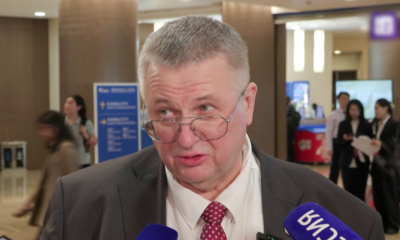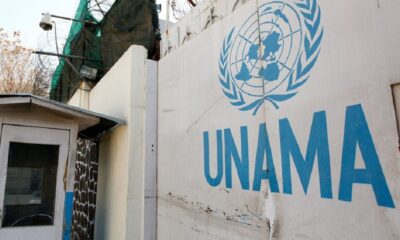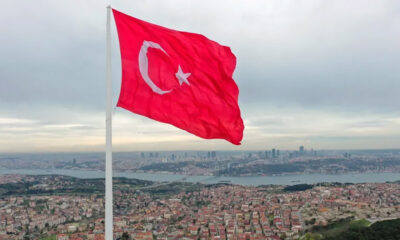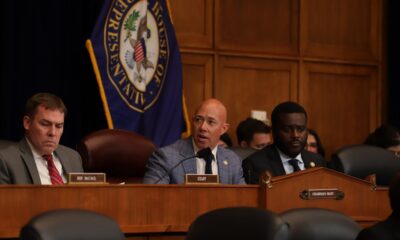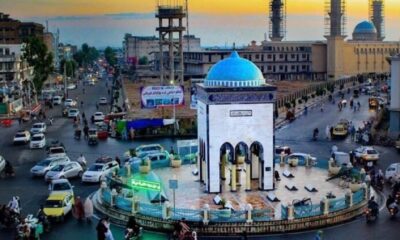Latest News
OIC calls for ‘constructive interaction’ with IEA to solve Afghanistan’s problems
Meanwhile, Minister of State for Foreign Affairs of Qatar Mohammed bin Abdulaziz bin Saleh Al Khulaifi said at the opening session of the meeting that the participation of the IEA in the meeting provides an important opportunity to conduct a meaningful dialogue regarding collective efforts to address the current challenges facing Afghanistan.
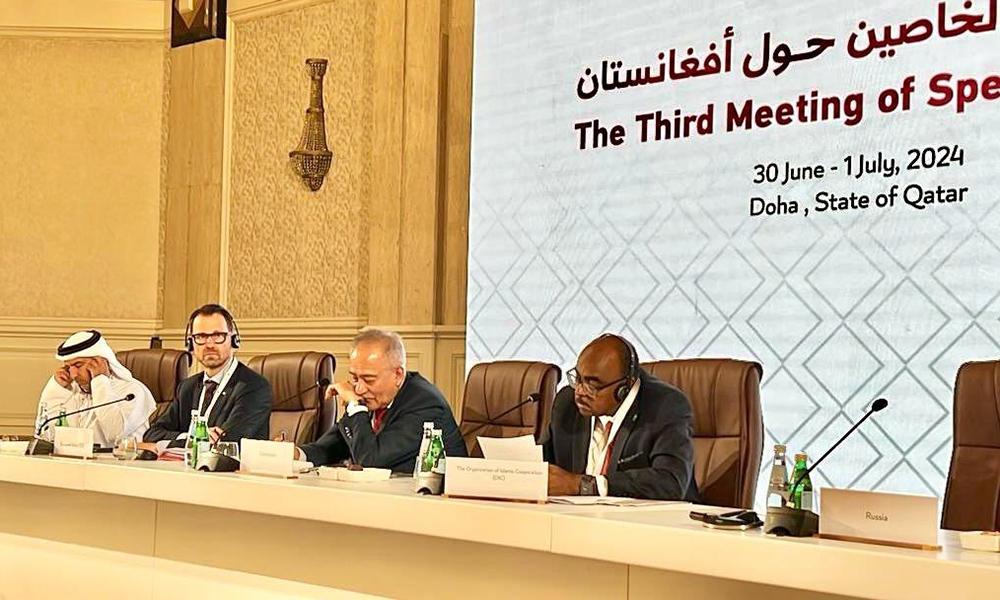
Ambassador Tariq Ali Bakheet, the special envoy of the Organization of Islamic Cooperation (OIC) for Afghanistan, addressed delegates attending the third Doha meeting on Monday and said there was an urgent need for the international community to adopt a coordinated and integrated approach to deal with the ruling Islamic Emirate.
Bakhit said a strategic approach to deal with the many challenges facing Afghanistan and its people was crucial and that in order to achieve this, the world needs to engage continuously and constructively with the IEA.
He affirmed the organization’s commitment to continue constructive dialogue with the Islamic Emirate government in Afghanistan on the various challenges in line with the resolutions of the OIC’s Islamic Summit and the Council of Foreign Ministers – especially issues related to women’s rights to education, employment and combating terrorism.
Bakhit’s address came after the United Nations Under-Secretary-General for Political and Peacebuilding Affairs, Rosemary DiCarlo, welcomed the “fruitful start” to the third meeting of special envoys on Afghanistan in the Qatari capital Doha.
The meeting, which ran over two days, June 30 and July 1, brought together what DiCarlo said was a “cross section of the international community and the Taliban (Islamic Emirate),” for the first time.
“Look forward to principled engagement to help the people of Afghanistan in many areas. And we thank Qatar for its support,” she said.
Meanwhile, Minister of State for Foreign Affairs of Qatar Mohammed bin Abdulaziz bin Saleh Al Khulaifi said at the opening session of the meeting that the participation of the IEA in the meeting provides an important opportunity to conduct a meaningful dialogue regarding collective efforts to address the current challenges facing Afghanistan.
He said that the ultimate goal is to support the Afghan people and achieve peace and prosperity in Afghanistan so that it contributes positively to regional and global stability.
Representatives of 25 countries including the United States, European countries, Russia, Pakistan, Iran, Saudi Arabia and India have attended the third Doha meeting on Afghanistan. Representatives of some international organizations have also participated in the meeting.
Related Stories:
OIC urged to invite IEA to its summit in Gambia
EU, OIC envoys meet to discuss humanitarian situation and education in Afghanistan
Latest News
Russia’s Deputy PM says IEA has a positive view of Moscow
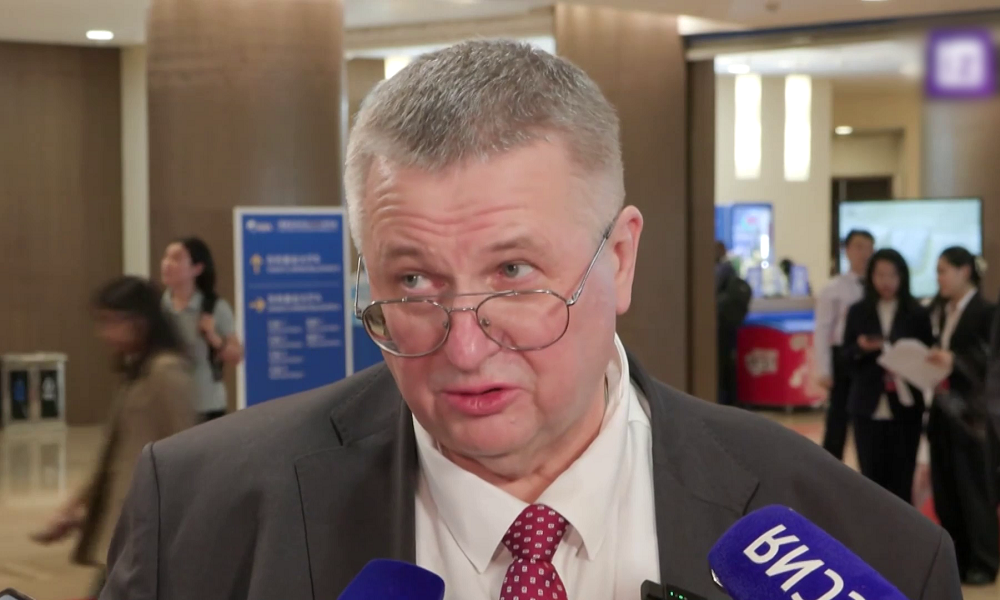
Russian Deputy Prime Minister, Alexei Overchuk, says the Islamic Emirate holds a positive view of Russia and despite existing challenges, Moscow sees an opportunity for deeper engagement with Kabul.
Speaking to Izvestia newspaper, Overchuk said Afghanistan’s rulers are very interested in developing economic relations with Russia. He also said that removing the Islamic Emirate from Russia’s list of banned organizations would provide an opportunity to tap into Afghanistan’s economic potential.
“Afghanistan has many problems, but it also has potential that is waiting for us. We’ve been in contact with the Afghans. They want development and to live in peace. They have a positive attitude toward Russia and a strong interest in developing economic relations.
“Furthermore, if a decision is made to suspend the Taliban’s (Islamic Emirate) designation as a banned organization, better opportunities for relations with this country will open up,” he said.
Overchuk emphasized that Russia’s Prosecutor General’s Office is currently pursuing the removal of IEA from the country’s list of banned organizations.
The IEA has in the past welcomed progress in improving diplomatic relations with Russia and had expressed a desire for closer ties.
Russia’s envoy for Afghanistan, Zamir Kabulov, has also said Moscow intends to form a joint Russia-Afghanistan working group in the spring of 2025.
Latest News
IEA focused on implementing ‘pure Islamic system’ nationwide, UNAMA says
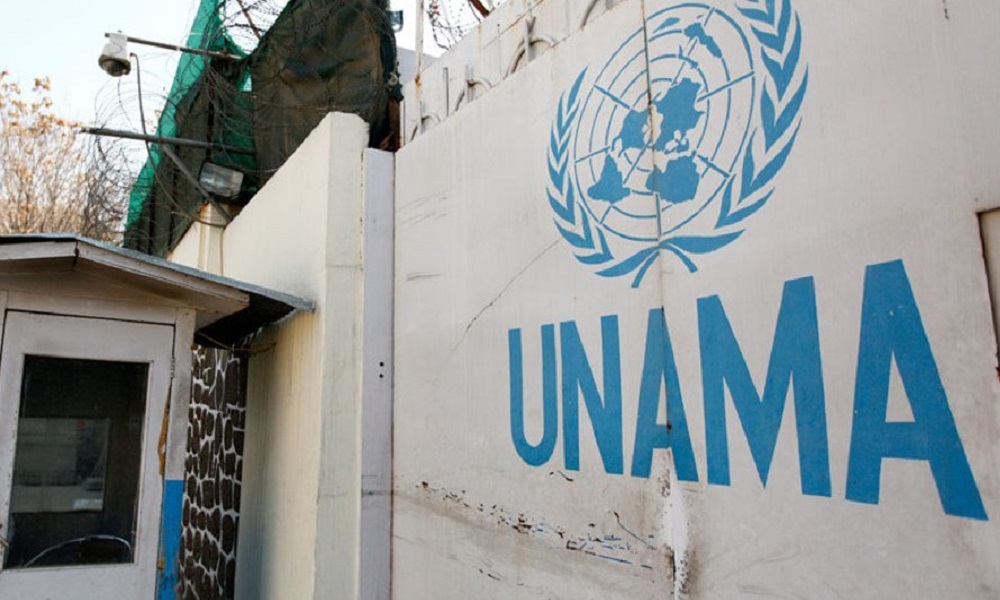
The UN in Afghanistan (UNAMA) on Thursday released a report on the impact, implementation and enforcement of the Islamic Emirate of Afghanistan’s (IEA) law on the propagation of virtue and prevention of vice (PVPV law) and found there to be a determination by IEA authorities to ensure their vision of a pure Islamic system is implemented nationwide.
The report covers the six-month period since the law’s promulgation in August last year. UNAMA stated it had “observed overall more systematic and consistent efforts in the de facto authorities’ enforcement of the PVPV law led by the de facto Ministry of the Propagation of Virtue and Prevention of Vice and Hearing of Complaints compared to the de facto authorities’ enforcement of earlier decrees.”
UNAMA noted that these efforts include the establishment of implementation committees in 28 of Afghanistan’s 34 provinces, and the deployment of about 3,300 PVPV inspectors with broad discretionary powers.
According to the report, UNAMA also observed far-reaching socio-economic impacts on Afghan men and women, “including increased restrictions on Afghans’ personal and private spaces and on women and girls’ access to public spaces and healthcare, dress code, and travel.
The report stated that the direct and indirect socio-economic effects of the law’s implementation are likely to compound Afghanistan’s dire economic and humanitarian situation, including on the ability of UN agencies and international NGOs to deliver humanitarian and basic human needs assistance to millions of people across Afghanistan.
In response to this report, however, the Ministry for Promoting Virtue and Preventing Vice has stated that it has helped thousands of women to secure their rights and has saved them from forced marriages in all provinces.
The ministry added that it has prevented abuses to eliminate undesirable customs and traditions in the country.
According to the ministry, a number of unknown groups, to achieve their malicious goals, have ignored all these achievements and seek to confuse public opinion.
This comes after the UN Security Council stated in a resolution on Afghanistan in December last year that it was seriously concerned “about the increasing erosion of respect for human rights and fundamental freedoms, in particular for women and girls and their lack of equal access to education, employment, justice, economic opportunities, full, equal and meaningful participation in public life, freedom of movement, and enjoyment of basic services – the absence of which make peace, stability, and prosperity in the country unattainable.”
The UNSC reiterated “its call for the Taliban (IEA) to swiftly reverse these policies and practices, including the “vice and virtue” directive”.
Latest News
Donor community meet in Turkey to ‘plan and coordinate’ aid to Afghanistan
In 2024, humanitarian and basic human needs partners raised a collective US$3.21 billion in support of the Afghan people, exceeding funding levels of the previous year.

The Turkish Embassy in Kabul has confirmed that a two-day Afghanistan Coordination Group (ACG) Meeting is being held in Istanbul where the international donor community will look at priorities and plans around the situation in Afghanistan.
In a post on X, the embassy said the meeting would be held on Wednesday and Thursday and that it was important for the donor community to coordinate activities.
This comes just two days after the United Nations in Afghanistan (UNAMA) called on the international donor community to maintain critical support for the Afghan people, 22.9 million of whom are in need of assistance in 2025.
“If we want to help the Afghan people escape the vicious cycle of poverty and suffering, we must continue to have the means to address urgent needs while simultaneously laying the groundwork for long-term resilience and stability,” said Indrika Ratwatte, the UN’s Resident and Humanitarian Coordinator and Deputy Special Representative of the Secretary-General in Afghanistan.
“Despite complex challenges in delivering assistance to the Afghan people, we must continue to make the gradual transition from life-saving assistance to sustainable solutions that address the root causes of vulnerability. This is critical for Afghanistan, the region, and the world.”
In 2024, humanitarian and basic human needs partners raised a collective US$3.21 billion in support of the Afghan people, exceeding funding levels of the previous year.
-
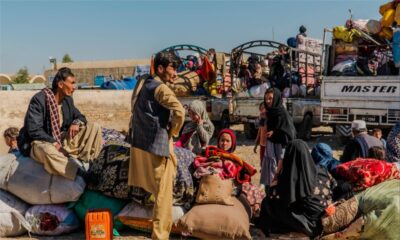
 Latest News4 days ago
Latest News4 days agoUN rights experts call on Pakistan to stop removal process of Afghan refugees
-
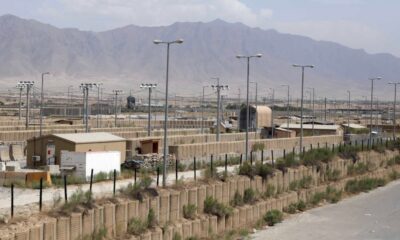
 Latest News4 days ago
Latest News4 days agoIEA rejects reports of US military planes landing at Afghanistan’s Bagram Air Base
-

 Science & Technology5 days ago
Science & Technology5 days agoMeta releases new AI model Llama 4
-
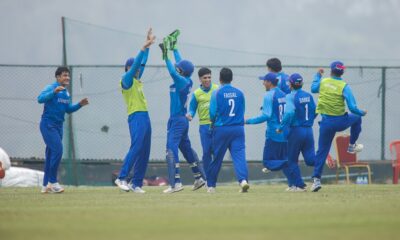
 Sport4 days ago
Sport4 days agoAfghanistan Under-19s beat Nepal by 1 run in second ODI, win series
-

 World5 days ago
World5 days agoAnti-Trump protesters gather in Washington, other US cities
-

 Regional4 days ago
Regional4 days agoRains add to challenge for Myanmar quake relief, toll at 3,471
-
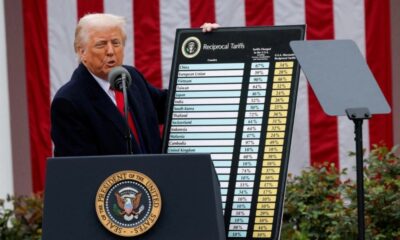
 Latest News3 days ago
Latest News3 days agoTrump’s tariff pressure on Afghanistan ‘will impact economic growth’
-
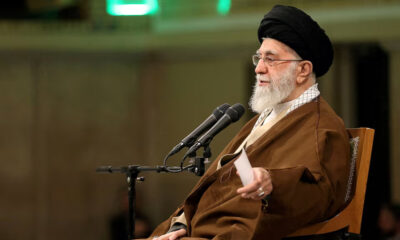
 Regional4 days ago
Regional4 days agoIran wants indirect talks with US, warns regional countries over strikes against it




